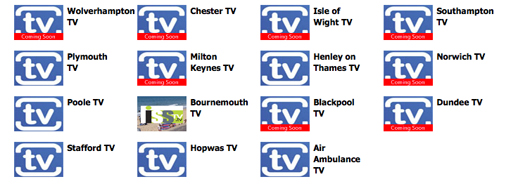A company specialising in video on demand and TV production has set up a platform that allow towns to buy a licence and broadcast content online.
View TV Group is currently working with 78 towns and aims for a total of 660 to sign up to use its “View TV Local”, a BBC iPlayer-style site compatible with iPhone and iPad.
The proposition is that each town will provide half its content and View TV Group will supply the rest, with the same programming, such as motoring reviews and national programmes, being rolled out to all areas.
The company plans to “up sell” the local content created to the TV stations which are planned as part of culture secretary Jeremy Hunt’s planned local TV network.
Earlier this week, Hunt backtracked on plans to create a centralised service and instead confirmed he favours individual TV stations.
Chairman and founder of View TV Group Jamie Branson told Journalism.co.uk the company’s proposals offered something different.
“Think of View TV Local as more like a hyperlocal and Hunt’s plans as regional TV,” he explained.
View TV Group is now selling licences for towns with costs starting at around £10,000, which pays for the technology, support and unlimited video upload.
After paying for a licence the local TV channels can bring in revenue by selling local advertising, a cut of which goes to the View TV Group. The company believes it has devised a revenue model that will work and “where the only risk is the initial licence fee”, Branson explained.
Branson did not want to reveal company names but said his firm is in talks with a newspaper group, plus several magazines and online publishers interested in local TV and video content.

 “Gradually more power cuts – the future is more certain than you think (…) With 90 per cent certainty I can tell you that tomorrow will be Saturday.”
“Gradually more power cuts – the future is more certain than you think (…) With 90 per cent certainty I can tell you that tomorrow will be Saturday.” After the conference I ran into Bill Thompson, the BBC’s technology columnist. Listen below to hear his views on the future for journalists:
After the conference I ran into Bill Thompson, the BBC’s technology columnist. Listen below to hear his views on the future for journalists: